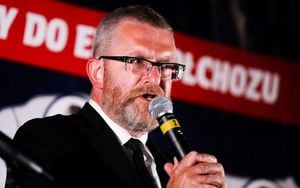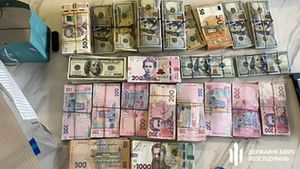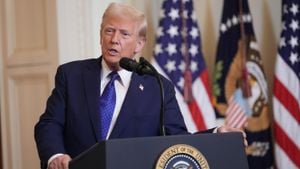The political atmosphere in Jordan has been significantly shaped by the recent developments surrounding the funeral of former Hezbollah Secretary General Hassan Nasrallah and Hacham Safieddine. This event, which has drawn significant public attention, signals potential shifts within the region's geopolitical dynamics.
According to reports, the political sources suggest two prevailing viewpoints on Hezbollah's current situation. The first perspective holds the belief, largely expressed by rival factions, claiming, "the party is no longer what it was before the Israeli aggression." This sentiment reflects the apparent challenges Hezbollah faces as it navigates shifting allegiances and heightened scrutiny following regional conflicts.
On the other hand, Hezbollah supports itself through the lens of having emerged victorious from the conflict, asserting its relevance and claim to power. Observers note, "this gathering will assert the party as the strongest local force," highlighting the significant presence expected at the funeral. This marked attendance is seen as foundational to reinforcing Hezbollah's narrative of resilience and strength.
These events come at the heels of the ceasefire agreement established on September 27, which has naturally drawn wider discussions about the future of Lebanon's political framework. Critics of the party, particularly those opposing Hezbollah's stance, claim there are vast segments within the populace who remain skeptical about Hezbollah's direction, often questioning their capacity to govern effectively.
Opposition lawmakers have expressed, "We cannot manage issues the way we used to after all that's happened with the support front opened by unilateral decisions," indicating their view of Hezbollah's leadership as having shifted from collective to individual decision-making, potentially inviting broader consequences for future governance.
With significant political ramifications following the funeral, the need for external support for Lebanon's stability cannot be overstated, especially amid rising doubts about Hezbollah's strategic choices and their long-term viability. Political observers continue to speculate on the potential outcomes of Hezbollah's political maneuvers and their impact on regional stability.
The overall consensus presents Hezbollah at a crossroads, where the blending of their former certainties faces contemporary challenges. The anticipated turnout at the funeral not only marks Hezbollah's continuing presence but also acts as a barometer for internal unity. The political ramifications of this gathering could reshape Lebanon’s future, as various factions react to Hezbollah's enduring commitment to its narrative.
Summing up, as the political atmosphere evolves, questions remain centered on Hezbollah's tactics and the responses they invoke both domestically within Lebanon and across the wider region. The dynamic interplay of support, opposition, and external influences will play out significantly following this event. With all eyes watching, the world stands by to see whether Hezbollah can consolidate its power effectively once more or if the tides of public sentiment will push back.



